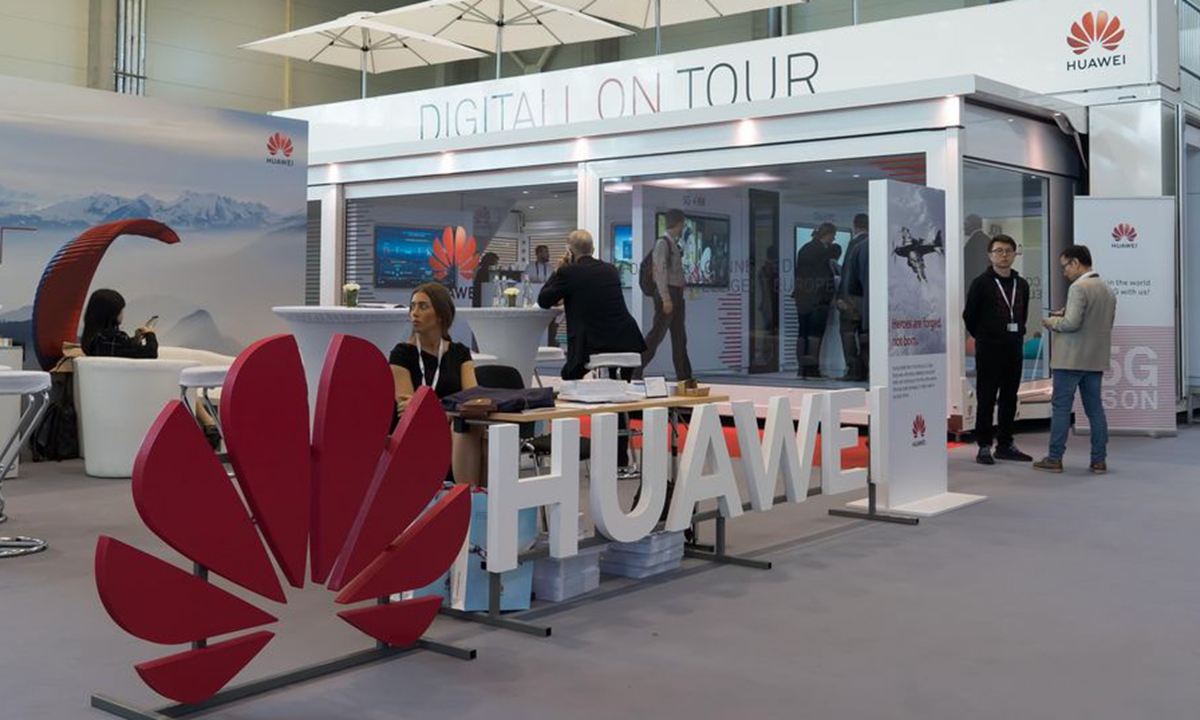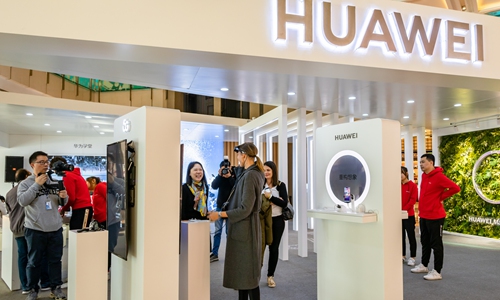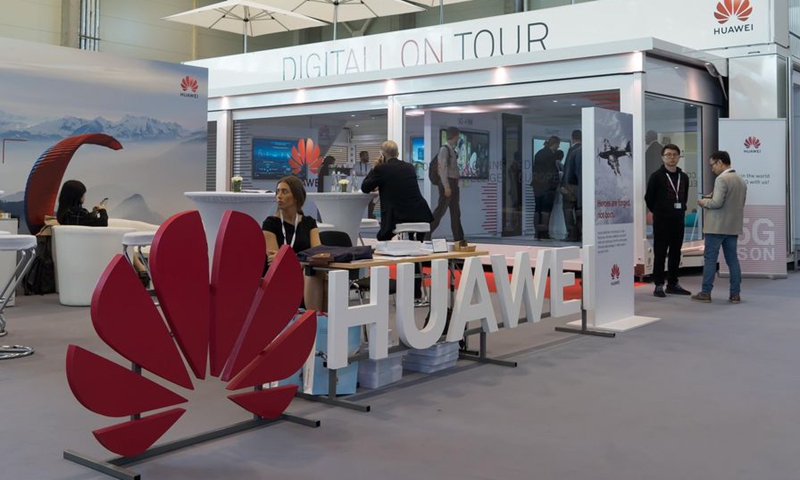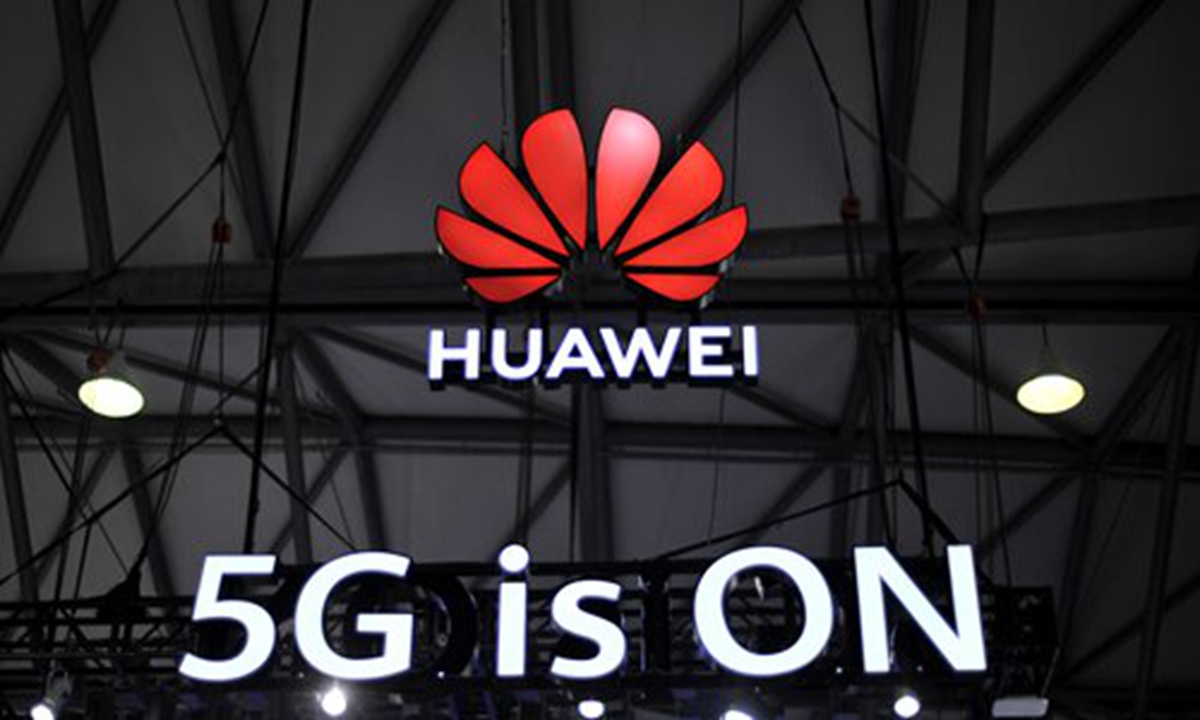Huawei has secured cooperation with Chinese automobile company BYD to explore the application of its chipsets in smart cars, according to media reports. Experts noted the move will give Huawei an extra edge in expanding its chipset market under the US crackdown.

The first chipset to be applied to a BYD smart vehicle will be the Kirin 710A, according to a report from 36kr.com. The chip was fully developed by HiSilicon under Huawei, and is currently only used for smartphones from Huawei and Honor, a Huawei subsidiary brand.
BYD has so far declined to provide further information on the matter, but the company has been working with Huawei on several projects. Its latest vehicle model, Han, uses Huawei's 5G module MH5000, becoming the first mass produced car powered with 5G technology by Huawei.
Ma Jihua, a veteran industry analyst and close follower of Huawei, told the Global Times on Monday that the reported move represents Huawei's latest efforts to adjust and diversify its chip business to generate new revenue growth points amid the US' crackdown.
"Selling chips to automakers is just the first step. The next step is to sell semiconductors to smart appliance makers and other intelligent device makers. Such a market is very large and profitable considering the commercialization of the 5G network," Ma noted.
The cooperation with BYD comes amid increased efforts from the US to squeeze Huawei from the global market. US companies have already been banned from selling chips to Huawei, and TSMC, the world's biggest contract chipmaker, has also suspended orders from Huawei.
Analysts added that the Kirin 710 chip is low-end and its manufacturer is not subject to the US' potential ban, which makes it easier to expand production so as to bring in substantial income for the Chinese tech firm.
It is not clear whether Huawei will sell its self-made chips to other Chinese smartphone makers. But Ma predicted that if Huawei's overseas sales slump drastically, it is highly likely that the firm will resort to such an option to make up for losses incurred.
The use of smartphone chips also bodes well for the development of China's intelligent driving industry. "Most vehicles use Internet of Things chips, which are not high-end when compared to smartphone chips. The computing capacity of smartphone chips is very advanced, meaning that the domestic intelligent driving industry could get a boost from working with Huawei," Ma explained.

Photo taken on Nov. 20, 2019 shows Huawei's exhibition booth during a press preview for the 2019 World 5G Convention in Beijing, capital of China.(Xinhua/Li Xin)
The first chipset to be applied to a BYD smart vehicle will be the Kirin 710A, according to a report from 36kr.com. The chip was fully developed by HiSilicon under Huawei, and is currently only used for smartphones from Huawei and Honor, a Huawei subsidiary brand.
BYD has so far declined to provide further information on the matter, but the company has been working with Huawei on several projects. Its latest vehicle model, Han, uses Huawei's 5G module MH5000, becoming the first mass produced car powered with 5G technology by Huawei.
Ma Jihua, a veteran industry analyst and close follower of Huawei, told the Global Times on Monday that the reported move represents Huawei's latest efforts to adjust and diversify its chip business to generate new revenue growth points amid the US' crackdown.
"Selling chips to automakers is just the first step. The next step is to sell semiconductors to smart appliance makers and other intelligent device makers. Such a market is very large and profitable considering the commercialization of the 5G network," Ma noted.
The cooperation with BYD comes amid increased efforts from the US to squeeze Huawei from the global market. US companies have already been banned from selling chips to Huawei, and TSMC, the world's biggest contract chipmaker, has also suspended orders from Huawei.
Analysts added that the Kirin 710 chip is low-end and its manufacturer is not subject to the US' potential ban, which makes it easier to expand production so as to bring in substantial income for the Chinese tech firm.
It is not clear whether Huawei will sell its self-made chips to other Chinese smartphone makers. But Ma predicted that if Huawei's overseas sales slump drastically, it is highly likely that the firm will resort to such an option to make up for losses incurred.
The use of smartphone chips also bodes well for the development of China's intelligent driving industry. "Most vehicles use Internet of Things chips, which are not high-end when compared to smartphone chips. The computing capacity of smartphone chips is very advanced, meaning that the domestic intelligent driving industry could get a boost from working with Huawei," Ma explained.



